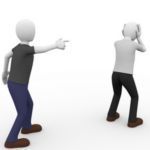This study focuses on the various attitudes we should adopt as we worship God in…
Tag: Spirit

A malevolent force operates in this world. There is an absolutely evil, malevolent force at…
John records a conversation between Jesus and a Pharisee, Nicodemus. Jesus reveals to this esteemed teacher how one must be born again to enter the kingdom of God.
Sigmund Freud theorized that human beings are internally comprised of three parts: the Id, Ego, and Superego. He depicted the Id as humanity’s primitive impulses or drives that seek expression. The Superego is humanity’s conscience and is socialized by external influences such as parents, religions, teachers, etc. In between the two stands the conscious self, the Ego, who serves as an arbiter between the Id and Superego. Internal conflict arises when the Id seeks expression in the conscious self, but is suppressed by the Superego. The Superego is seen as the source of conflict since it hinders the counselee from following their Id’s desires. Therefore the counselor sides with the counselee’s Id and attacks the various influences which bolster the Superego’s stand against the Id’s desires.
The word “grace” appears 18 times in the Old Testament. It appears 125 times in the New Testament. A striking change. What accounts for this? The apostles tell us. John said that “the law was given through Moses, but grace…came through Jesus Christ” (John 1:17). Paul declared that Christians are “not under law but under grace” (Romans 6:14, 15).
